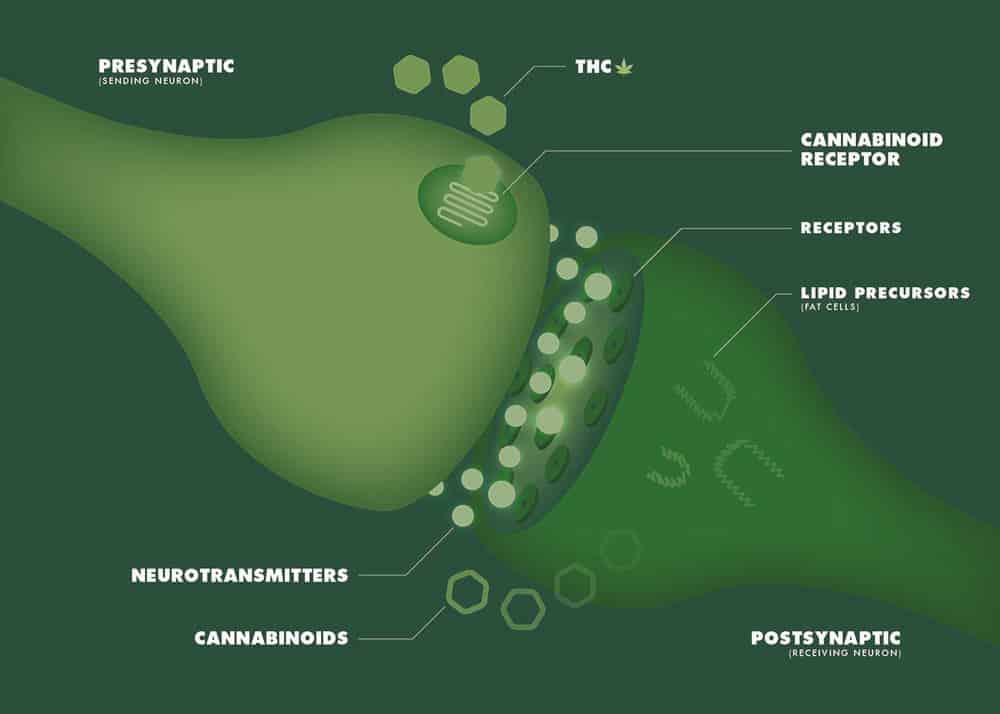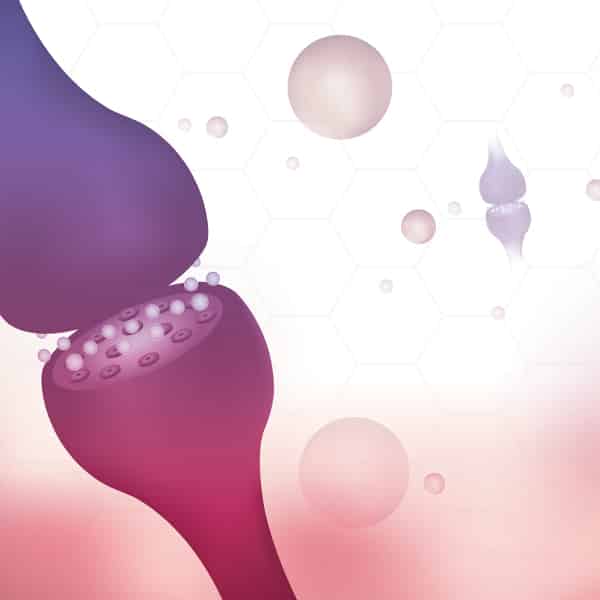Hemp Science, CBD
5 Things to Know About Your Endocannabinoid System
The human body is a fascinating vehicle that we are still learning more and more about. The endocannabinoid system (ECS) is one of the many fascinating components of the central nervous system that is built into each of us, yet understood by few. In recent years, an increasing amount of research has been centered on understanding the role of our endocannabinoid system, and as more research is produced, the better we can use such a system to our advantage.

Here, you’ll find answers to some of the most common questions regarding the endocannabinoid system, which is a natural part of your body that is important to understand:
1. What is your endocannabinoid system?
The endocannabinoid system is a naturally occurring group of cannabinoid receptors that exist in the brains of most mammals. Cannabinoid receptors are important regulators that control a variety of human functions. Naturally, the human body has cannabinoid receptors that are either signaled internally by endocannabinoids (literally, internal cannabinoids) or externally by the consumption of hemp. Even if you do not ever consume hemp, per se, your (ECS) is still hard at work; it plays a vital role regulating your moods, appetites, and memories and is a crucial component of the central nervous system.
What makes the ECS so unique is that its existence is entirely natural. From birth, cannabinoid receptors exist throughout our entire body, and though these receptors can be manipulated, they cannot be removed.
Studies have shown that—because of its use in things such as energy storage and nutrient distribution—the endocannabinoid system is important for the body’s ability to achieve homeostasis. Without our ECS, simply, it seems our bodies would not be able to function nearly as efficiently or effectively as they currently do, and because of this, it seems we ought to appreciate the role such a system plays in our everyday lives.
2. How does the endocannabinoid system work?
The endocannabinoid system is something which naturally exists in our body, no matter what, but the way in which it operates can be notably affected by the consumption of the hemp plant (the introduction of external cannabinoids). The ECS is a sort of communication system that delivers messages from the brain to the body, and—as is the case with all of our neurotransmitters—this system plays an important role in regulating our thoughts, feelings, and actions. Normally, messages are communicated from the brain through brain cells known as neurons; but the ECS operates backward in the sense that these “messages” are generated by the neuron itself and then sent back to the brain.
The endocannabinoid system is psychologically fascinating because the chemicals it uses to operate are unique from ordinary neurotransmitters. When the plant is consumed, the amount of cannabinoids within the body increases in response, and because of this, we are able to feel differently when consuming it in unique ways and could not be experienced through the consumption of any other type of plant.
3. What does the endocannabinoid system control?
The endocannabinoid system, naturally, is a functioning part of our internal anatomy. Because the ECS is something that is actively interacting with our brain—the most vital organ to the human body—it can influence a wide number of mental and bodily functions. Cannabinoid receptors exist throughout our entire body, and the effects of consuming Cannabidiol (CBD; an active component of hemp) vary tremendously among different individuals. CBD is unique from Tetrahydrocannabinol (THC)—the component of the plant that makes you feel “high”—in the sense that it is most less psychologically active, and thus, believed by many to be more medically practical.
Common experiences—as reported anecdotally and studied scientifically—from consuming hemp-derived products include support for appetite, emotional wellness, and general wellness. When an individual’s cannabinoid intake is higher than normal, they are likely to feel soothed, supported, and mellow. Because CBD consumption can directly influence so many critical components of the human body, there has been an increased interest among scientists and doctors wondering what are the possible medical benefits such a natural phenomenon presents.
There still remains a great deal of research that needs to be done—this system has really only begun to be understood since the 1990s—but some research suggests that manipulating our endocannabinoid system through the introduction of CBD can be an effective strategy in treating a variety of physical and psychological conditions. Because, contrary to many varieties of drugs that currently exist, cannabinoid treatments utilize something that is already occurring naturally within us, it seems the search for natural treatment options will inevitably lead to an increased demand for hemp products.
4. What is endocannabinoid deficiency?
Endocannabinoid deficiency, as the name would suggest, is a condition in which an individual’s body is not producing the level of cannabinoids needed in order to properly function. Some doctors, such as Dr. Ethan Russo, have concluded that endocannabinoid deficiency may be one of the leading causes of certain health conditions and health consequences.
Because cannabinoid receptors exist throughout our entire body—and play a vital role in the communications occurring between our body and our brain—when these receptors are functioning in short supply, it is unsurprising that our most fundamental bodily functions may be directly affected.
If these two basic observations are, in fact, true—that endocannabinoid deficiency is a leading cause of many physical ailments and hemp consumption can increase the number of cannabinoids present in an individual—then it seems to find long-term, sustainable cures to these ailments may be within reach than otherwise thought.
5. What are cannabinoid receptors?
Ultimately, it seems the presence of cannabinoid receptors in the human body is something that we cannot justifiably ignore. These receptors—even if we have never consumed industrial hemp of any variety in our life—are present throughout our entire body, and their presence has a direct influence on our physical and psychological well-being. CB1 is a type of cannabinoid that is primarily found in our brains and CB2 is a type of cannabinoid that is found throughout our bodies and directly affects our immune system. Because these receptors are so vitally intertwined with our central nervous system (CNS), it is no surprise that hemp can have such a profound effect on our very well-being.
There is still a lot that needs to be learned about the endocannabinoid system and the applied uses of CBD, but what has already been understood by the medical community presents a new frontier of possibility. As new research continues to emerge and as the human body is something that we are continuing to better understand, it seems that our applied understanding of cannabinoid receptors is something that will inevitably continue to improve. Knowing that the endocannabinoid system is something naturally occurring within us, it seems the future of medicine is something that—naturally—our bodies are equipped to provide answers to.




